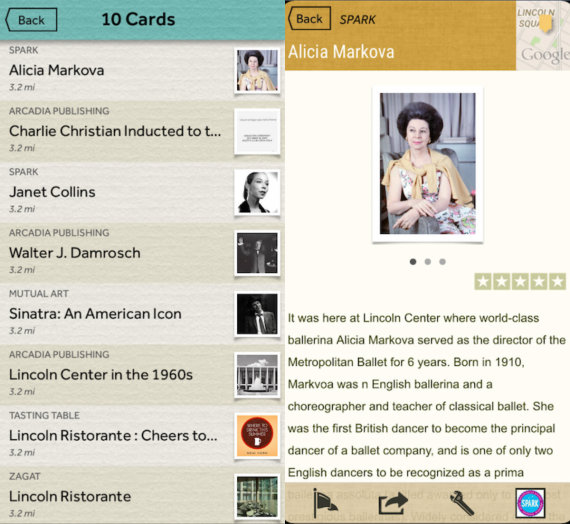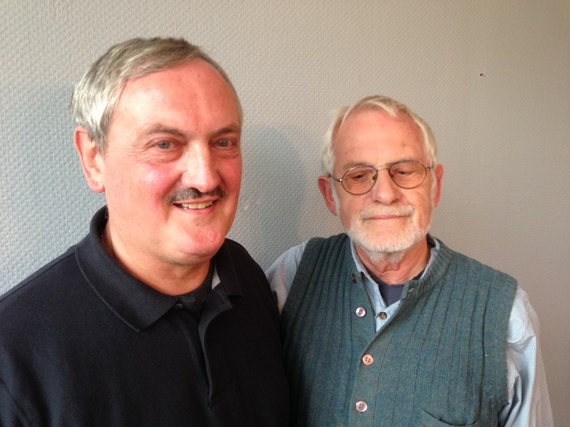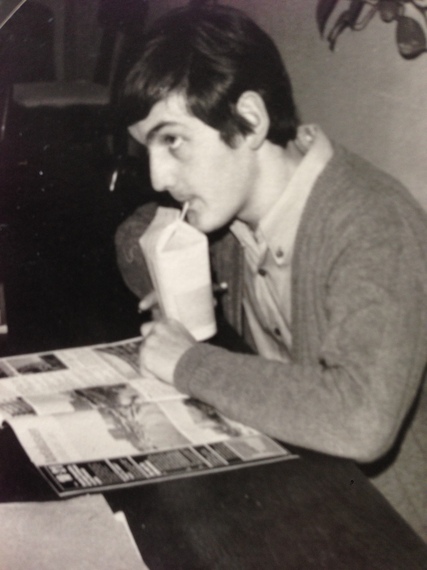
Daily Archives: March 22, 2015
Trans Reporter Zoey Tur in Hot Water Over Remarks on Trans Bodies, Rights
Trans Reporter Zoey Tur in Hot Water Over Remarks on Trans Bodies, Rights
Following contentious commentary, trans advocates are vocally questioning Zoey Tur’s recently established role as a media spokesperson.
Mitch Kellaway
<i>Pretty Woman</i> Turns 25
<i>Pretty Woman</i> Turns 25
One of the most iconic scenes of ’90s cinema comes from the 1990 film Pretty Woman.
The legendary moment is when Julia Roberts, playing down-and-out LA sex worker Vivian Ward, walks into a Rodeo Drive boutique to buy an expensive and elegant evening gown. She is soon rudely asked to leave by the shop assistants. Her provocative attire and slap-dash look make both think that poor Vivian doesn’t have a cent to her name.
Loaded up with cash but unable to use any of her $100s, Vivian despondently exists the store, upset at how these women “wouldn’t let her shop”. (Memorably another ’90s movie, Romy and Michele’s High School Reunion, paid tribute to this scene. While watching Pretty Woman, Michele says to Romy, “I just get really happy when they finally let her shop.”) After later Vivian wins her way into respective Rodeo society, she returns to the scene of the (fashion) crime and dishes out some home truths to the snotty shop clerks.
Vivian is a local L.A. street girl whose roommate has used up all their rent money on drugs while Vivian is struggling to make ends meet working the streets. One night as Vivian takes a walk down Hollywood Boulevard a flash sports car pulls up and the dashing and debonair Edward Lewis (Richard Gere) pokes his head out the window. The sauve Edward asks her to help him with directions around Hollywood before Vivian soon slides inside.
Edward asks Vive to be his girl for a week-long rendezvous, with one condition — that she join him for dinner as his female companion for a business meeting. But after cruising through Beverly Hills with her hundred dollar bills trying to find an outfit appropriate to wear that night, Vivian is escorted out of the high-end stores because of her skimpy clothes and unrefined attitude.
As you can expect, emotions get mixed up in Edward and Vive’s transactional sexual arrangement and Edward must soon choose whether to stick to his cool cold business tricks or make this beautiful but uncultured woman his girl. Between expensive jewellery and limousine trips, Edward and Vivian work out their differences and happiness ensues by film’s end.
Looking back at Pretty Woman, it’s not hard to see the era it was made in. The film came out right at the end of the 1980s and that decade’s big business boom, high-end fashion culture, and obsession with luxury, wealth and coin. We see the glamorous hotel rooms, decadent and exotic meals, and the ravishing clothes and hats Vivian gets along her Beverly Hill shopping strips.
The film proved to be an enormous success when it was first released in 1990 and has since become one of the seminal movies of the romantic-comedy genre. It also helped launch Julia Roberts’s acting career and gave the Hollywood star her first Best Actress Academy Award nomination — a rare feat even by today’s standards since Roberts played a sex worker.
Of course, being an American film, Pretty Woman joins the mythology captured in cinema people trying to climb the social ladder out of the slums and into the mansions. Undoubtedly, many women have watched the film believing that a gallant and rich man could sweep them off their feet and make them his girl, too. Either way, Pretty Woman still offers an excitingly escapist tale. Many of us can believe that the handsome Gere will one day cruise up to us on a street corner somewhere and asks us to join him inside.
With her bad blonde wig and safety pins holding her imitation leather boots, Roberts still dazzles us with her earthy, warm, and self-deprecating Vivian 25 years on. She transforms from the anxious, risqué and cash-strapped Hollywood girl into a beautiful, assertive and self-aware woman after her windswept romance with Edward in their luxurious hotel room.
While 50 Shades of Grey has recently captured our attentions and titillated our imagination, it may be time to forget about the s-and-m kink and stripped back Beyoncé tracks and instead indulge in a Pretty Woman couch session. You’ll see Julia Roberts work the streets in black thigh-high pumps, a black American Express credit card, and, of course, encounter an intensely romantic fire-escape reunion that will leave you begging for more.
But we warned: you will be singing that title track by Roy Orbison for weeks afterwards. I know I still am.
www.huffingtonpost.com/nathan-smith/post_9212_b_6917972.html?utm_hp_ref=gay-voices&ir=Gay+Voices
Barney Frank Speaks Out Against 'Abysmally Ignorant' Ben Carson and Closeted, Anti-gay Politicians: VIDEO
Barney Frank Speaks Out Against 'Abysmally Ignorant' Ben Carson and Closeted, Anti-gay Politicians: VIDEO
In an interview with CNN’s Gloria Borger earlier today, former Rep. Barney Frank touched on a wide range of topics: his early conversations with colleagues on the Hill about his sexual orientation, why he didn’t “conform to a gay stereotype,” his thoughts on current, closeted gay lawmakers, his incredulity with neurosurgeon Ben Carson’s views on homosexuality, why Democrats have a white male problem, and more.
Watch, AFTER THE JUMP…
Frank’s discussion on coming out in the 1980s can be found here.
Kyler Geoffroy
Victoria en Puerto Rico de la comunidad LGBT
Victoria en Puerto Rico de la comunidad LGBT
En Puerto Rico la comunidad LGBT celebra que el Gobierno ha cambiado su postura frente a los matrimonios entre personas del mismo sexo.
www.youtube.com/watch?v=oCYrgYY_ek8&feature=youtube_gdata
100_0842

SPARK And Google Created An App That Highlights The History Women Made Right Beneath Your Feet
SPARK And Google Created An App That Highlights The History Women Made Right Beneath Your Feet
With some help from Google, a group of women are changing history by spotlighting herstory.
The SPARK Movement has partnered with Google to create a smartphone app called “Women On The Map” that alerts users when they’re near places where women made history. SPARK, which stands for Sexualization Protest: Action, Resistance, Knowledge, is an organization that encourages healthy sexuality and promotes gender equality in all areas.
The idea for the app first started a year ago when SPARK noticed there were very few women featured in “Google Doodles,” the design featured on Google’s homepage during certain holidays. So they did their own research and found that only 17 percent of Google Doodles between 2010 and 2013 featured women. The non-profit decided to try to change those numbers. “We like Google Doodles a lot, but we couldn’t help but notice that, like a lot of other places where we learn history, they felt a little…male. And white,” a SPARK blog reads.
As it turns out, Google had already initiated a plan to diversify Google Doodles, but the two groups discussed a more general concern for the disregard of women’s contributions throughout history. Thus “Women On The Map” was created using Google’s existing “Field Trip” mapping app, which alerts users about information related to the locations they are near.
The app was created collaboratively with Google, SPARK and the SPARKteam, which includes young women between the ages of eight and 22. The girls researched the women they wanted people to learn about which included the stories of 119 women from 28 countries with more than 60 percent being women of color, Executive Director of SPARK Dana Edell told The Huffington Post.
“The purpose of Women On The Map is to show the world that there were (and are) so many women whose accomplishments have been seemingly invisible to us,” Ajaita Saini, a member of the SPARKteam told The Huffington Post. “We need girls to know that they can be whatever they want, and their contributions are as equal as if a guy did it instead. Likewise, we need guys to know that not everything done in the past was the work of men.”
The Women On The Map app will alert users to a major historical event that occurred at that location and the important roles women played in it. To use the app, iPhone users need to download the Field Trip app and can find the Spark: Women On The Map installment in the “Historic Places & Events” tab.


“This project allows us to bring women — and especially women of color — to the forefront of history, where their achievements can be recognized more widely,” SPARK’s website reads.
The app highlights the achievements of a long list of women such as Patsy Takemoto Mink, the first Japanese-American female lawyer to practice law in Hawaii, and Christine Jorgensen, the first person to undergo a sex change operation in the U.S. While the app also includes more recognizable figures like Rosa Parks, the goal of the app is to shine a light on women we don’t always hear about in history class.
“Working with SPARK is hugely exciting for us because both companies were working towards the same thing — raising awareness about the history around us through storytelling and community engagement,” Yennie Solheim, Senior Marketing Lead at Niantic Lab (the Google start-up that created Field Trip), told The Huffington Post.
“The whole point of this app collaboration is to inspire girls (and boys too actually), to be what they want, and acknowledge that girls do make a significant impact on the world,” Saini said. “We’re giving kids new and different role models, so they can say to themselves ‘Yes. I can be like HER.'”
CHILE IGUALDA PARA TOD@S | 4 PARTE | LGBT TEVE
CHILE IGUALDA PARA TOD@S | 4 PARTE | LGBT TEVE
14 Marzo, la comunidad LGBT de Rancagua y el Pais se vistio de gala para la gran GALA REVELACION, ORGANIZADA POR CHILE IGUALDAD PARA TOD@S, realmente un privilegio haber estado …
Creative Commons young women at mirror

German Couple Talks About Life Together And Being Gay In Germany
German Couple Talks About Life Together And Being Gay In Germany
Note: This article was written in cooperation with gaystream.info – the gay online portal for news, discussions and lifestyle articles. It was published on HuffPost Germany and translated into English.
Georg and Dietmar, partners for 44 years
For almost half a century, Georg and Dietmar have been a happy couple. But Georg knows that other gay people their age weren’t so lucky and that lives were destroyed by laws and by being ostracized by society. This is why he has committed himself to fighting for justice, with a mix of youthful energy and old-age wisdom.
65-year-old Georg smiles at me with young eyes, as I talk to him about his long-term relationship with Dietmar and ask him to give our readers some advice for a successful partnership. He feels he isn’t able to do so “since every relationship is very different and everybody has to figure out for themselves what works. You know, sometimes we ourselves are still blown away by the fact that we’ve been together for almost 44 years, and especially by how time has flown.”
He’s also happy to share that they’ve been in an open relationship for a few years now, which has been very fulfilling for both of them. However, that’s not what defines the relationship: “Our loving relationship goes way beyond sexuality,” Georg states, and Dietmar agrees.
The one vital thing is that they have so much in common after all these years. Their shared memories and experiences are continually deepening.
Finding each other in 1971
In the fall of 1971, Georg moved from Bavaria to Berlin for his job. In Munich, he’d had a two-year relationship with an older, high-profile man, which ended very unhappily for Georg.
“After that experience, I certainly didn’t feel like getting into another relationship too soon. But then, three days after arriving in Berlin, I met Dietmar at my job. In November, we got to know each other better, and we’ve been together since.”
When he was asked a year later if he was going to stay in Berlin, Georg replied that he didn’t like the city, but that he had found the man of his dreams in Dietmar and wanted to stay together with him forever –- and that was only going to work in Berlin.
At this point, things seemed like they were going a little too implausibly smoothly, and I inquire again about whether they’ve faced serious relationship crises.
“There haven’t been any problems in our relationship, and not with our two families either, other than the ordinary little frictions that are simply human,” says Georg.
However, outside of the happy relationship, the societal framework then was very different than it is now. This was a large part of the reason I wanted to meet Georg, and learn more about what our gay parents and grandparents struggled with. I found out very quickly that there are several factors that continue to affect gay people to this day.
In court for spending the night at another gay man’s house
Georg had his first sexual experiences in 1968, at which time “unnatural fornication” was considered a serious punishable offense in accordance with Article 175 of the German Criminal Code. Georg, having been brought up in a liberal household, and feeling youthful and carefree, didn’t feel he was doing anything wrong. He wasn’t too concerned with that law, and the atmosphere among Munich’s students was just as liberal.
“I was studying in Munich, and I remember that some of my colleagues considered the fact that I was attracted to men as something special and even elite. I even had to take some of them to so-called ‘homo bars,’ which were then mainly atrocious places full of plush furniture.”
Georg’s carelessness came to an end in the spring of 1969. An acquaintance informed him that criminal investigations against him had been initiated because of his offense against Article 175 of the Criminal Code, and that he would have to testify shortly.
He had spent two weeks at a friend’s in Donauwörth, in Bavaria.
“The fact that two young men were staying together in one apartment, and that one of the men, my friend, looked very different and flamboyant, was enough for someone to denounce us. That was how society still felt, even as the article was close to being repealed.”
The investigations were stopped, since Georg truthfully testified that he had only temporarily stayed in the apartment and that there had been no sexual contact. However, he still remembers “with the utmost reluctance” how much the investigations violated his privacy.
Article 175: The injustice of the Nazi era continued beyond 1945
Georg’s own experience inspired him to take a closer look at the history of Article 175, and he still likes to remind people that not everyone was lucky enough to “be born late enough.”
About 100,000 investigation proceedings and about 50,000 convictions under Article 175 are documented for the Federal Republic of Germany between 1945 and 1969, and about 1,300 convictions for the German Democratic Republic up to 1959. The National Socialist version of the article was retained in areas occupied by the West in 1945, and in the Federal Republic of Germany from 1949 on. The version that had been incorporated into the German Imperial Criminal Code in 1871, which stated that “unnatural fornication exercised between persons of the male sex is to be punished with a jail sentence,” was once again made harsher in the Nazi era.
From that time on, even an erotic glance could have you arrested. Between 1933 and 1945, tens of thousands of gay men were arrested and several thousand killed in concentration camps. After 1945, gay men were no longer able to understand their persecution as a part of radical Nazi policy. After being freed from the concentration camps, some men were arrested anew to serve out their “remaining sentence.” There are examples of gay men who had escaped the concentration camps, but many were detained again in the 1950s because they were in violation of Article 175. Only this time they weren’t incarcerated in a concentration camp, but in prison.
For gay men, there was no liberation after May 8, 1945; the persecution continued. Georg finds it important to emphasize that the Catholic Church had been very active in swaying the decision makers to retain the article of injustice.
Outraged about rehabilitation
Once Georg and I start talking about reparations, you notice how deeply this otherwise very calm man is affected by this topic. He has met too many men who suffered great injustice in the name of Article 175.
He states that, for at least 20 years, different groups have been demanding measures for the rehabilitation and compensation of men convicted between 1945 and 1969 due to Article 175.
“The claims were always denied, using the argument that the convictions were constitutional and did not present any injustice under the law at the time,” he says.
In 2002, the German Bundestag adopted a law repealing punishments under the Nazi regime, which included convictions under Article 175. Those few men that were still alive were able to apply for reparation payments. While this step was essential, Georg is still not fully satisfied.
“You have to understand that a man convicted before 1945 would be considered exempt from punishment, but if the conviction took place after 1945, he still has a criminal record,” he says, referring to the decades after the war in which Article 175 still criminalized homosexuality.
Real justice is more important than individual laws that can always be changed
Georg is very familiar with the elaborate arguments lawyers use to explain the situation, but he’s not interested in them. He’s seen too much in the course of his long life, and he has experienced how quickly such seemingly irrefutable principles and arguments can change in the course of time. What he himself focuses on is bigger, and it is not relative: real justice.


